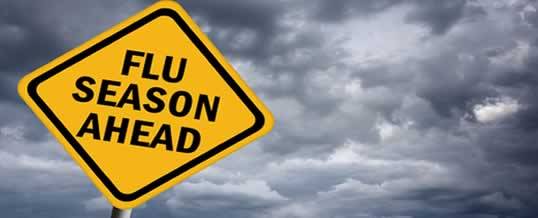
Although there is an increase in children displaying febrile seizures after receiving the flu vaccination, does that mean that your child suffering from epilepsy is at a higher risk of compounding the problem? Many parents are worried that this influx of seizures caused by the vaccination is related to epileptic ones. Febrile seizures are viewed by professionals as “harmless” in comparison and they are usually brought on by high fevers caused by the flu.

Take No Chances – Some doctors suggest getting the flu shot if a person already has chronic medical conditions such as epilepsy. Those that suffer from such afflictions are at an increased risk for serious complications from the virus. However, doesn’t the risk of adding febrile seizures and the flu further exacerbate things as it now acts as an addition to epilepsy? If children who don’t suffer from epilepsy are experiencing an increase in seizures, what does that mean for children who do?
Protecting Against Virus Infections – Various scientists believe that epilepsy is a condition brought on by damage or continued stress to the brain. The tolerance level for this complication varies in each person – which leads to the prospect that anyone can be susceptible to seizures at any given time depending on the circumstance. As the body’s temperature increases while it fights of the viral infection, this is a form of that kind of stress that can add additional problems to those who experience epileptic seizures regularly. Doctors and scientists hope that the onset of this complication can be reduced by receiving regular flu shots – especially against the H1N1 virus.
Febrile or Epileptic Seizures – In 2012, scientists at the Swedish facility of KarolinskaInstitutet, discovered that there was no link between the Pandemrix H1N1 flu shot and epileptic seizures. During the case study, they found that this vaccination didn’t have an impact on the neurological disorder. Febrile seizures can be mistaken for epilepsy if viewed by someone who can’t tell the difference. These are usually brought on by high fevers – and nothing more. While they are similar, epilepsy and febrile seizures are two different symptoms to two different problems. Febrile seizures should stop once the fever has been reduced. Those who suffer from epilepsy will continue to experience seizures at seemingly random intervals.
At Greater Risks without the Vaccination – The Center for Disease Control and Prevention found that two-thirds of the children who died from the 2009 spread of H1N1 suffered from neurological disorders such as cerebral palsy, intellectual disability and epilepsy. This leads scientists to theorize that children who suffer from these disabilities are placed at a much higher risk and even death when faced with contracting this or any other flu virus. As fevers can cause greater strain and/or damage to the brain due to sustained temperatures human bodies were not designed for, this can easily compound the problem for those who regularly suffered from epilepsy.
While some parents may be under the impression that the flu vaccination is too dangerous to consider, there is a mountain of evidence to the contrary. Children who suffer from epileptic seizures are at great risk for worse seizures if they become infected with the flu. These same children could face fatal circumstances if they were to contract the H1N1 swine flu. Consult your physician about the flu season and keep your children safe.
Author Bio:
This post is contributed by Christine Maddox. Currently she is pursuing her Master’s degree from University of Texas as well as blogging for www.4nannies.com. She loves to write anything related to parenting, kids, nanny care etc. She can be reached via email at: christine.4nannies @ gmail.com.
